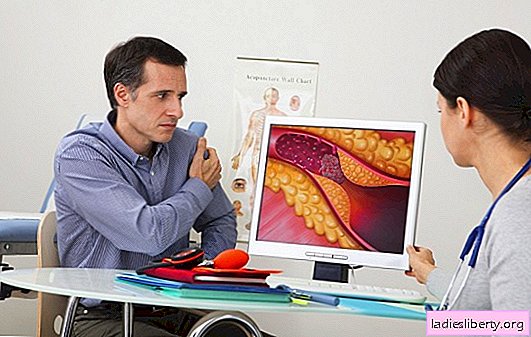
Cytomegalovirus (Cytomegalovirus hominis) - DNA-containing virus, in nature and structure resembling herpes. It lives in certain cells of the human body. Cytomegalovirus is not curable! If a microorganism gets inside a person, he will remain there forever.
The immune system keeps the virus under control, preventing it from multiplying and carrying its devastating effects. But with the weakening of the defenses, the cytomegalovirus is activated, causing various ailments.
In order for the virus to "wake up", it needs a serious push in the form of developed immunodeficiency. A healthy person should not be afraid of an exacerbation of the infection. And people whose immunity "does not work" due to autoimmune diseases (AIDS, oncology) should be serious about the possible consequences of the parasite.
Cytomegalovirus - causes
The microorganism is highly contagious. It is transmitted:
1. contact-household and airborne droplets (contained in saliva), through the use of common household items and hygiene, when coughing, sneezing and kissing;
2. sexually, as it is found in high concentrations in seminal fluid and vaginal secretions;
3. during organ transplants, blood transfusions, manipulations with poorly processed surgical instruments;
4. from mother to baby during labor or in utero (with activation of cytomegalovirus in the mother's body).
Women who become infected during pregnancy are also at risk of transmitting the disease to the baby. A virus that enters the body long before pregnancy and is in an inactive state is not dangerous for the unborn baby.
Cytomegalovirus - symptoms
In the vast majority of cases, cytomegalovirus does not manifest itself in any way. For this it is worth saying thanks to our immune system.
However, immunity does not immediately produce antibodies to the virus, therefore, immediately after the entry of cytomegalovirus into the human body, symptoms similar to influenza or SARS can develop. The patient complains of poor health, weakness, headaches, aching muscles and bones; the appearance of cough, runny nose and white plaque on the tongue (oral candidiasis) is possible.
After some time, immunity is produced by antibodies that “precipitate” the virus and reverse it, but, unfortunately, they cannot completely destroy it.
With severe immunodeficiency, cytomegalovirus causes severe, sometimes irreversible, disorders of all organs. As a rule, this occurs with a low immune status of the patient (less than 200 cells). Pneumonia, frequent bronchitis, inflammation of the female genital organs, sepsis and other diseases that are difficult to treat can develop.
Cytomegalovirus - diagnosis
The main diagnostic method for cytomegalovirus is the detection of antibodies (immunoglobulins) to it. Enzyme-linked immunosorbent assay (ELISA) shows both acute and latent infection. As a rule, antibodies of group G indicate an acute stage, antibodies of group M indicate asymptomatic. However, ELISA cannot provide complete information about the course of the disease. To clarify all the nuances, several more types of diagnostics are carried out:
- PCR method is based on the isolation of pathogen DNA;
- cultural analysis (seeding).
The material for the study is human biological fluids (blood, urine, semen, vaginal secretion).
Cytomegalovirus - treatment and prevention
It is pointless to treat the latent form of infection, since the virus is resistant to all known drugs, the body itself is the best defender against it, or rather, its most important guardian is immunity. Therefore, all efforts of the human carrier should be aimed at maintaining the immune balance.
In some cases, when the cytomegalovirus "hosts" in the body, with low immune response, a long-term antiviral treatment is prescribed with Zidofovir, Hanzeklover, etc. Drugs and doses are assigned to each individually. In parallel with antiviral medications, immunostimulating agents are prescribed.
The acute period immediately after infection also does not require treatment (except for people whose immune status is very low), since a healthy immunity "takes everything into its own hands" and pacifies the virus.
Prevention of the disease primarily involves the abandonment of promiscuous sexual life, personal hygiene and the use of barrier methods of contraception. Although cytomegalovirus is transmitted through close physical contact, these preventative measures will greatly help to avoid infection.











